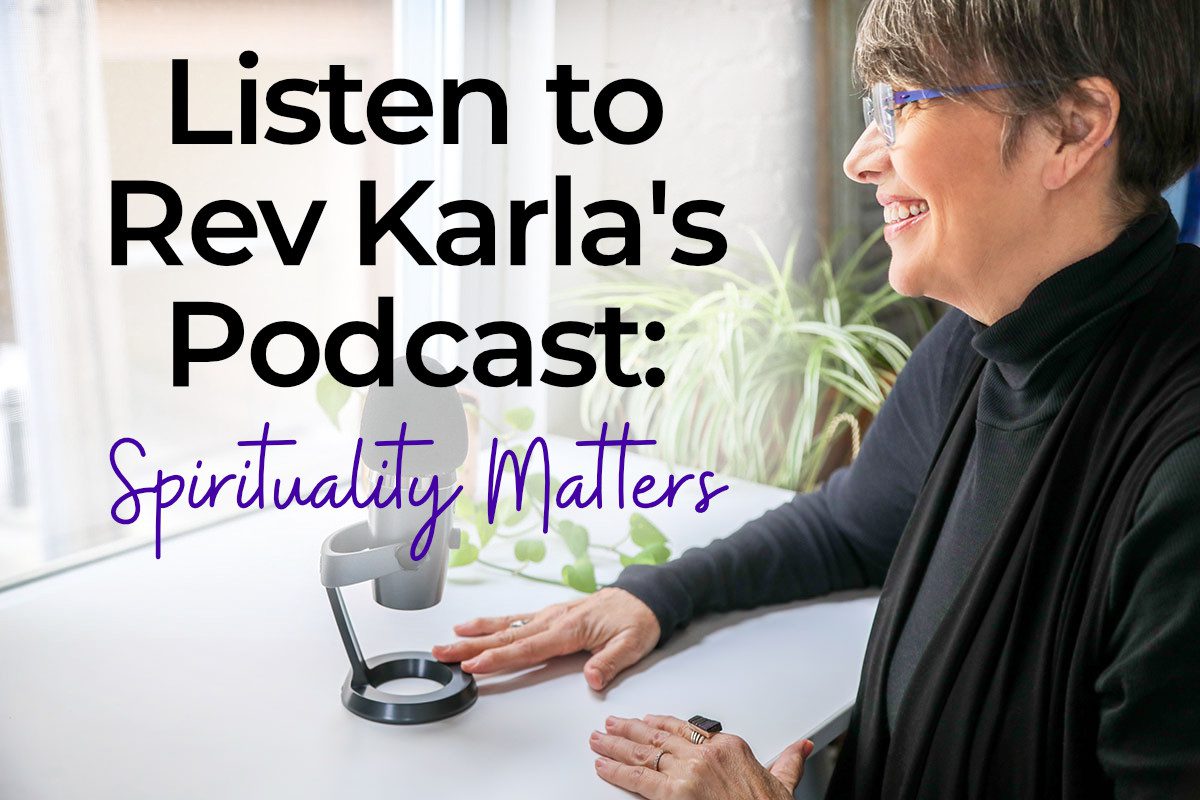Being Spiritual in a Religious World
“What does interspiritual mean?”
“It means that God can be found outside of religion.”
“Oh. I hadn’t thought of looking for God outside of religion before. I just alway thought that if you didn’t go to church, it meant you were going to hell.”
I’ve had more than one conversation with some iteration of this exchange. The open and curious will then ask more questions as they seek to understand. It is indeed a beautiful experience where honest dialogue moves us toward a sacred space of connection.
There is, however, another way this conversation ends that often puts a permanent barrier between me and the other person. That is where the one to whom I’m speaking digs in their heels, and with a resolute look in their eyes, informs me that the path to hell is paved with good intentions -- one of the many Christian smackdowns intended to end the conversation with a proverbial “talk to the hand, because this face is no longer listening.”
With a final “I’ll pray for you” as a punctuation mark on the previous smackdown, the conversation is over.
The first time the “I’ll pray for you” exchange happened, I’ll admit it stung -- for I had never been on the receiving end of one of those smackdowns. For years, I had been the deliverer, wielding my Biblical wisdom as if I was the only one qualified to be judge and jury to the world.
Not entirely my fault -- it’s part of the indoctrination received inside the evangelical church.
Now, years later after receiving the ire of a disappointed and judgemental Christian, the sting of those words is long gone. Oddly enough, those words now become confirmation for my decision to explore spirituality outside the walls of organized religion.
The spiritual but not religious path isn’t for the faint of heart. It can be lonely and unsettling when the container that held your spirituality and provided you a road map is no longer there. This spiritual paradox can be overwhelming, sending some back to church where they vow to silence this internal longing and “fake it in the pews,” a phrase that has been used to describe the ones who say it’s easier to fake it than risk being ousted from the only spiritual community they’ve ever known.
The pendulum can also swing the other way where the spiritual sojourner simply gives up all hope of finding a connection to God outside of religion and silences the call of their soul to wander, explore and dance with the mystery of the Divine.
Of course, the reasons people leave church, return to church or reject God are so multi-layered we can’t give it space in a short blog post. It does, however, deserve space here to acknowledge one’s spiritual journey is just that -- their own and shouldn’t be dismissed as not a valid and sacred experience for each of us.
This sacred experience of the spiritual but not religious has long been recognized by spiritual thought leaders as an authentic path. Adam Bucko, a Christian contemplative and Episcopal priest, recently wrote in Fr. Richard Rohr’s daily newsletter:
“We have to acknowledge that when people hear about spiritual and not religious people, they often immediately think that these are people who are just shopping around and not really that committed. . . . But when we look at some of the people who come from that group, we realize that actually many of them spend more time [in spiritual practices] than regular churchgoers.”
There’s no shopping out here, Beloved. It’s deep introspection, a commitment to expand one’s spiritual wisdom, and heal from the wounds caused by our collective and individual human experiences, including religious trauma.
The spiritual but not religious is often accused of performative spirituality -- a spiritual light if you will. That can be said of anyone, regardless of their religious affiliation or spiritual path. How many of us know, or perhaps even was the one, who treated spirituality like a switch that was turned on from 10 to 11:30 on Sunday mornings and detached their actions, thoughts and fruits of the Spirit from the other 166.5 hours in their week.
In his opening paragraph of a recent newsletter, Father Richard Rohr, a Franciscan priest and Christian teacher, wrote:
“While interspirituality is not for the faint of heart, or for dabblers who merely want to appropriate the clothing, language, or customs of other faiths, sharing in the spiritual heart of a different religious tradition can be a genuine vocation, bringing much needed peace and healing to the world.”
Beloved, just as being religious is more than the 90 minutes you spend in church, the spiritual but not religious path is so much more than appropriating mala beads and proudly wearing them as you trot about your day.
There is sacred work to be done here -- work that aligns our human experience with our soul’s authenticity. In other words, a spiritual path, regardless of its origins, should always point us to our highest good.
And our highest good is always found when we willingly accept the invitation to dance with the Divine.
No, Beloved. Church does not own God.
No one human, religion or spiritual path owns God.
The Holy is found in religion but is also found in sacred and meaningful ways in the world.
There are many sacred paths.
Your spiritual path is not contingent upon another’s approval.
Your soul is God’s home.
and
God is big enough to share.
If God is big enough to share, then what part is yours to keep, and what part is for others?
You don’t have to answer that question.
The answers are found in how we show up and allow others to do the same.
This big table of spirituality is big enough to handle all of the ways we find God in the world.
Come.
Let us sit together and take part in this sacred community.
Blessed be.


